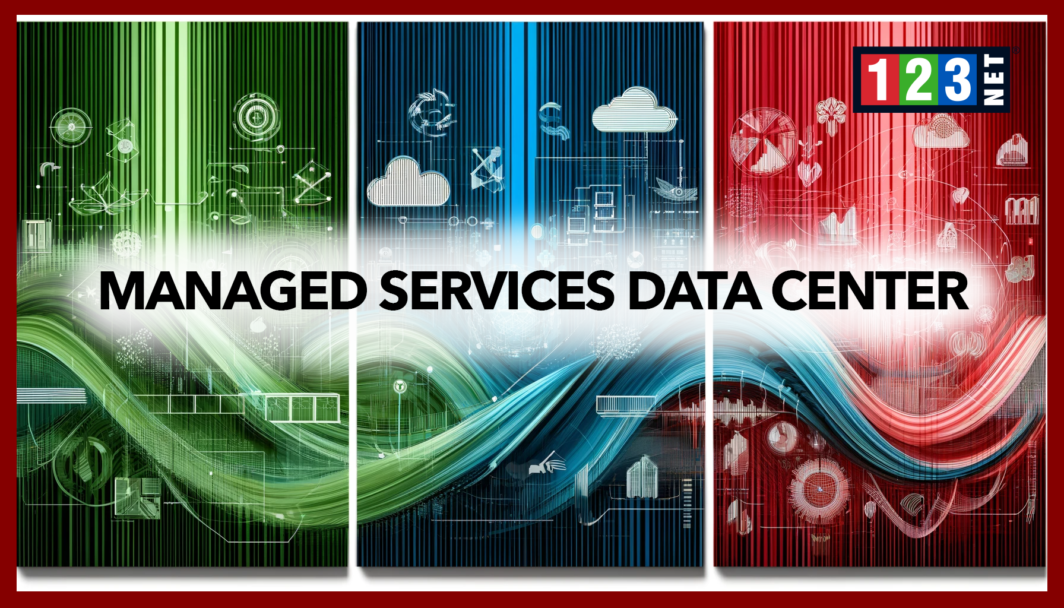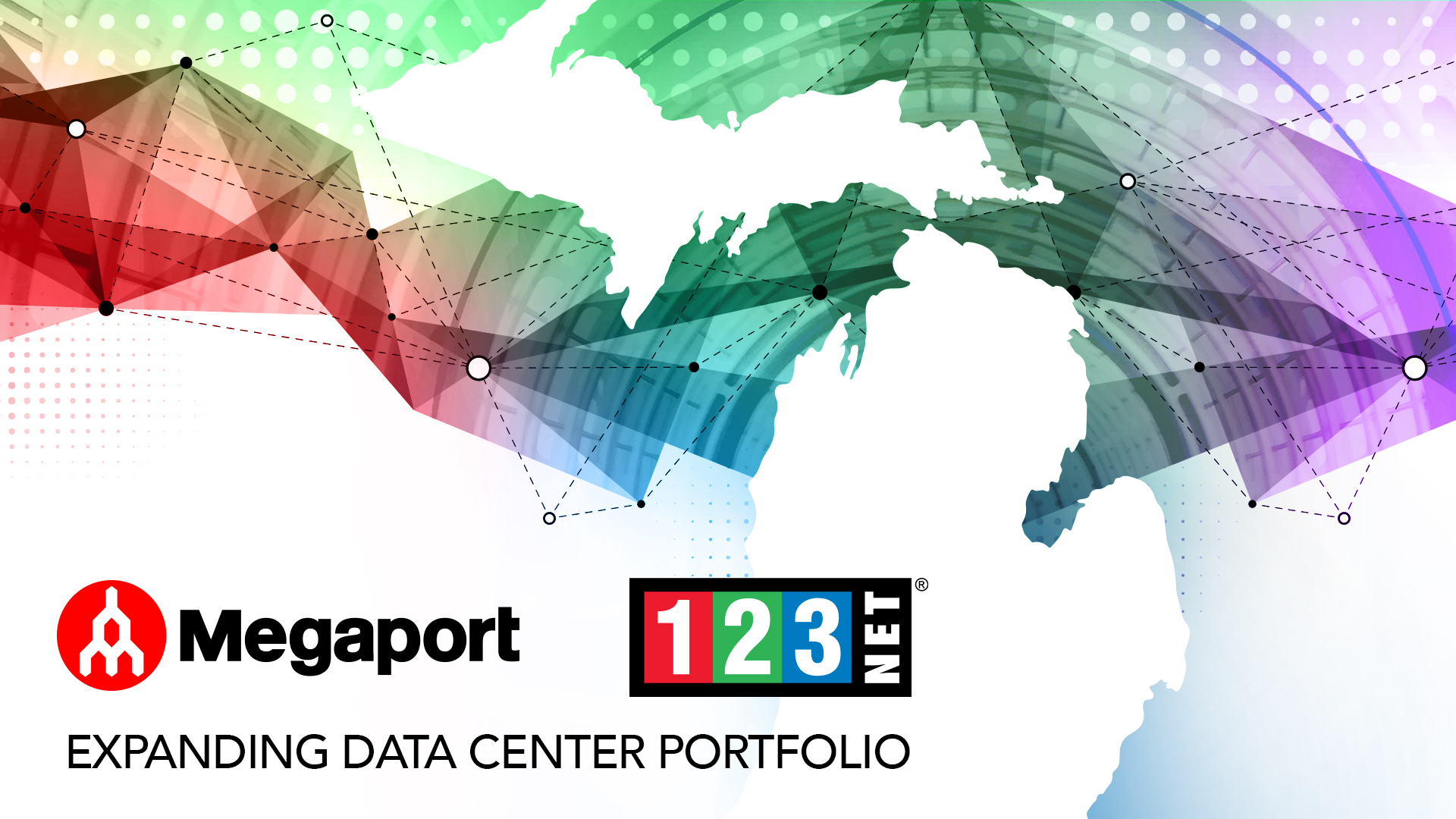
Introduction
Managed services data centers embody a transformative approach in IT infrastructure management, with third-party providers overseeing daily operations and maintenance. This model enables businesses to concentrate on core functions without the complexities of IT management. By integrating cloud services, virtualization, and extensive IT support, these services enhance operational efficiency and reliability, ensuring that businesses can leverage advanced technology solutions without direct management burdens. This setup not only streamlines processes but also significantly boosts system dependability.
The Role of Managed Services in Modern Data Centers
Enhanced Operational Efficiency
Managed services are crucial in modern data centers, streamlining operations by outsourcing routine management tasks. This allows businesses to focus on strategic IT activities rather than day-to-day maintenance. Managed services handle everything from software updates to hardware management, ensuring systems are up-to-date and functioning efficiently. This shift not only frees up resources but also allows companies to allocate more time and budget towards innovation and development.
Improved Reliability and Responsiveness
A key advantage of managed services is their ability to enhance the reliability of data centers. Providers offer 24/7 monitoring and rapid response to any technical issues, minimizing downtime and maintaining business continuity. This constant vigilance ensures that potential problems are identified and addressed before they can impact the business, providing peace of mind and steady operational performance.
Contribution to Scalability and Performance
Managed services contribute significantly to the scalability and performance of data centers. They allow businesses to easily scale their IT infrastructure up or down based on current needs without major upfront investments in physical hardware or staffing. This flexibility is vital for adapting to market changes or expanding business operations. Additionally, managed services optimize the performance of data center resources through advanced technologies and efficient resource allocation, boosting overall productivity and efficiency.
Key Components of Managed Services Data Centers
Monitoring Services
Monitoring is a foundational service in managed data centers, ensuring all systems operate within specified performance thresholds and benchmarks. Continuous monitoring helps detect anomalies or performance dips, facilitating immediate corrective actions to maintain system integrity and efficiency. For example, a financial services firm might use monitoring services to oversee their data transactions in real-time, ensuring high availability and immediate issue detection.
Management Services
Management services are pivotal, handling daily data center operations, including server management and IT infrastructure upkeep. These services are designed to keep the data center running smoothly by managing software updates, hardware configurations, and network setups. A case study could involve a retail company that outsources its entire data center management, allowing it to focus on e-commerce operations while the managed service provider ensures the IT backbone operates flawlessly.
Security Services
Security services in managed data centers offer robust protection against physical and cyber threats, safeguarding data integrity and ensuring compliance with regulations. These services include firewalls, intrusion detection systems, and regular security audits. An illustrative example is a healthcare provider using managed security services to protect patient data and comply with stringent HIPAA regulations, thus enhancing data privacy and reducing risk.
Support Services
Support services provide comprehensive customer and technical support, handling inquiries and issues promptly to ensure customer satisfaction and system functionality. This includes everything from troubleshooting helpdesk operations to technical guidance for end-users. A relevant example could be a software development company that relies on managed support services to maintain high levels of service availability and user satisfaction, thereby ensuring smooth operations across multiple time zones.
Comparing Traditional vs. Managed Data Center Services
Traditional data center operations typically require substantial capital investment and incur significant operational challenges. Businesses need to invest heavily in physical infrastructure, IT staff, and continuous maintenance, which can strain resources and limit flexibility. In contrast, managed services present a more cost-effective and flexible solution, reducing the need for extensive in-house IT maintenance and large upfront investments.
Cost-Effectiveness and Reduced Capital Expenditure
Managed services dramatically reduce the financial burden on businesses by minimizing the need for significant capital investments in hardware and facilities. Instead of spending on physical servers, storage, and networking equipment, companies can utilize managed services to access advanced data center technologies. This model shifts the capital expenditure to a more manageable operational expense, allowing businesses to allocate funds more effectively and avoid the depreciation costs associated with owning hardware.
Enhanced Flexibility and Scalability
The managed services model offers greater flexibility and scalability compared to traditional data centers. Businesses can scale their IT resources up or down based on current demands without the complexities of physically upgrading or downsizing infrastructure. This is particularly beneficial in today’s dynamic market conditions, where the ability to quickly adapt to changes can provide a competitive edge.
Operational Efficiency
Managed services also enhance operational efficiency by outsourcing the day-to-day management of data centers to experts. This allows companies to focus on core business strategies while leaving the technical details to seasoned professionals. Managed service providers employ specialized teams that ensure data centers operate smoothly, reliably, and in compliance with the latest standards and regulations.
Technologies Driving Managed Data Center Services
Automation: Streamlining Operations
Automation plays a crucial role in enhancing the efficiency of managed data centers by reducing manual intervention and streamlining operations. Automated systems can manage routine tasks such as data backups, system updates, and network configurations. This has greater accuracy and consistency than manual processes. This not only speeds up operations but also reduces the likelihood of human error, enhancing overall operational reliability. For instance, automation in server provisioning allows data centers to deploy servers quickly and precisely according to predetermined specifications, minimizing setup time and potential configuration errors.
Artificial Intelligence: Enhancing Predictive Maintenance
Artificial intelligence (AI) has transformed the landscape of managed services by enabling predictive maintenance. AI systems analyze data from various sources within the data center to predict potential failures before they occur. This proactive approach to maintenance keeps systems running smoothly and prevents downtime, which is critical for maintaining business continuity. AI-driven analytics can identify patterns that suggest a need for hardware replacements or software updates. This is allowing maintenance to be scheduled at the most opportune times without disrupting normal business operations.
Machine Learning: Optimizing Resource Allocation
Machine learning algorithms are adept at analyzing vast amounts of operational data to optimize resource allocation. These algorithms can dynamically adjust resources based on real-time demand, ensuring that computing power, storage, and network bandwidth are utilized efficiently. This not only maximizes performance but also reduces wastage of resources, contributing to cost savings and environmental sustainability. For example, machine learning can be used to balance loads across servers, ensuring that no single server is overwhelmed while others are underutilized.
Challenges and Solutions in Managed Data Centers
Data Security Challenges
Managed data centers, while efficient, face significant challenges in ensuring data security. As custodians of sensitive and critical business data, these facilities are prime targets for cyberattacks. The complexity increases with the integration of various technologies and services from multiple vendors. This is making the data centers susceptible to vulnerabilities if not properly managed. To address these security concerns, managed service providers must implement robust cybersecurity measures. This includes the deployment of advanced firewalls, intrusion detection systems, and regular security audits to assess vulnerabilities and respond to threats promptly.
Compliance and Regulatory Challenges
Compliance with legal and regulatory requirements is another hurdle for managed data centers. Different industries face unique regulations. This is such as HIPAA in healthcare and GDPR for data protection in Europe, which mandate strict data handling and privacy procedures. Managed data centers must ensure they are compliant with these regulations to avoid hefty fines and damage to reputation. Implementing compliance protocols involves regular reviews and updates to security policies, employee training on compliance standards, and ensuring all data handling processes meet the specific regulations of the industries served.
Integration Issues
Integration of managed services with existing IT systems poses a challenge. Particularly in complex environments where legacy systems and new technologies must work seamlessly together. Disparities in technology can lead to inefficiencies and increased risk of downtime. To mitigate these issues, managed data centers need to develop strategic integration plans. This can include thorough testing, regular updates, and the use of middleware that can bridge different technologies. Ensuring compatibility and facilitating smooth data flow between systems is crucial for maintaining operational continuity and maximizing the benefits of managed services.
Future Trends in Managed Data Center Services
Greater Integration of Cloud Computing
As technology evolves, the future of managed data center services is set to witness a deeper integration of cloud computing. This trend will likely dominate the sector, offering unprecedented scalability, flexibility, and cost-efficiency. The cloud model allows businesses to access and manage resources over the internet. It is also reducing the need for physical infrastructure and lowering operational costs. The shift toward hybrid and multi-cloud environments will enable businesses to optimize their data storage solutions and improve disaster recovery and data accessibility.
Increased Reliance on AI for Operational Efficiency
Artificial intelligence (AI) is expected to play a pivotal role in enhancing the operational efficiency of managed data centers. By automating routine tasks and analyzing large datasets to predict future needs, AI can optimize resource allocation and maintenance schedules. The use of AI will lead to more proactive, rather than reactive, management strategies, reducing downtime and improving service delivery. AI’s capability to learn and adapt will also drive smarter, more responsive data center operations.
Expansion of Green Data Centers
Sustainability concerns are driving the expansion of green data centers. These facilities are designed to minimize environmental impact through energy-efficient technologies and the use of renewable energy sources. The growing emphasis on corporate social responsibility and the increasing regulatory pressures to reduce carbon footprints are pushing data centers to adopt greener practices. This trend not only supports environmental sustainability but also reduces operational costs by conserving energy and optimizing cooling requirements.




